Carol Dweck floats like a butterfly but her intellect stings like a bee.
Gliding into the reception of the Caledonian Club – a private members’ club in the shadows of Buckingham Palace – Dweck is immaculately dressed in head-to-toe navy. She is tiny, no more than 5ft, and well known to the receptionists. Their eyes light up when she appears and they greet her by name.
She ushers me through to the sitting room. For a woman who arrived in England from the US just a few hours earlier she is remarkably bright-eyed.
“I don’t get jet lag,” she says, quietly, in a tone that suggests the very idea amuses her.
But her diminutive stature and quiet voice cloak an academic powerhouse. Dweck’s psychological research into “growth mindsets”, completed over 45 years, has made her a well-known name in schools and businesses across the world.
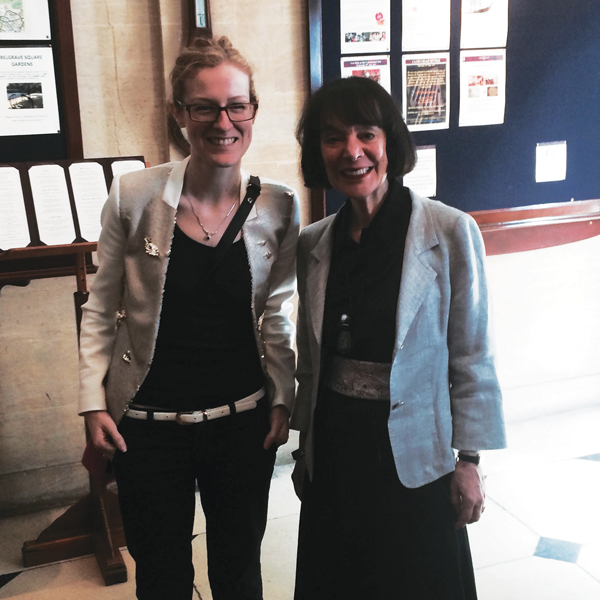
Her book Mindset has more than 14,000 reviews on Amazon and, the day after we meet, education secretary Nicky Morgan mentions it in a speech. When I try to watch Dweck speak at the Festival of Education at Wellington College later in the week, even the standing room is full.
Her path to academic stardom began not in a research lab, but in Mrs Wilson’s sixth-grade classroom in Brooklyn, New York.
Born the middle sibling of three, in 1940s New York City, Dweck’s father worked “in export-import” and her mother in advertising.
“I don’t know if she had a growth mindset,” Dweck says, “but she was way ahead of her time!”
Dweck and her eldest brother excelled at school, but in sixth grade (year 7) her class was made to sit in order of their IQ scores.
“It was already a top IQ class in the school, so the degradations were very fine, and yet if you weren’t one of the high IQ students, she wouldn’t let you erase the blackboard or wash the erasers, or carry the flag or even have the responsibility of carrying a note to the school principal.
“On the one hand, I didn’t believe that a score on a test was that important; on the other hand, every student wants to succeed in the framework that’s established. So looking back, I think that glorification of IQ was a pivotal point of my development.”
Her younger brother was less subordinate.
“I was rebellious in my mind, but he was rebellious in his actions. Often I would sit in school and think, ‘This isn’t very interesting’ or ‘I don’t agree with this’ but I kept that to myself, whereas my younger brother would speak out.”
(He just sold his biotech software company, she notes. So he turned out all right.)
One of the smartest in her class, she remembers being told that the school was counting on her to get the top score in a state-wide chemistry test. She achieved 99 out of 100.
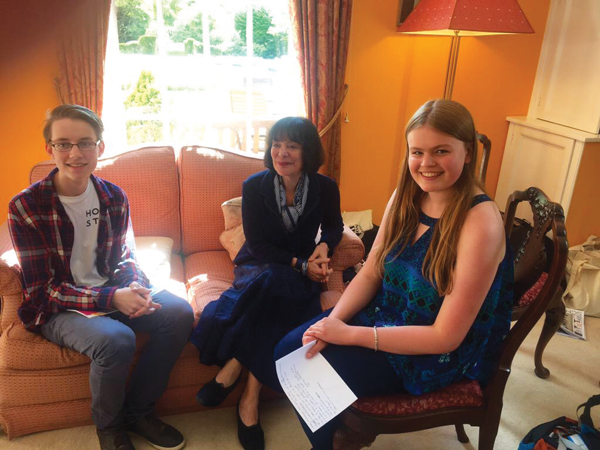
But the pressure that such a comment puts on children echoes through her work today. In her most famous study she looked at the praise that teachers give to pupils – and found that children who are told they are “clever” are less likely to take on challenging tasks in the future, for fear that they will no longer appear so clever and so lose their opportunity for praise.
She also discovered that when students who have been told they were smart were later asked to self-report scores on a difficult test, almost 40 per cent lied.
“It was so humiliating to do poorly . . . I don’t think they could even admit to themselves that they struggled, whereas the kids who were praised for taking part in the process of learning remained engaged, enjoyed the tasks . . . and they told the truth!”
Dweck’s first degree is from Columbia University; she completed graduate study at Yale in 1972.
For her PhD she asked children to complete increasingly difficult problems – and watched their reactions. She expected they would do one of two things: treat it as the end of the world or reluctantly “cope with it – and I did see it as something to cope with”.
“I was quite amazed when some of the kids got excited when I gave them problems they couldn’t solve . . . my eyes kind of bugged out!
“Those kids taught me something that determined the rest of my career. I wanted to figure out what kind of ‘special sauce’ they had and I wanted to bottle it – that is what I devoted my career to.”
“I was amazed when kids got excited when I gave them problems they couldn’t solve. I wanted to bottle their special sauce”
Her first job after graduate school was at the University of Illinois, where she spent 11 years completing research projects and looking more closely at why people reacted differently to failure, and what it meant for their future success.
Eventually Harvard beckoned – but its focus on “clever” people jarred with Dweck’s research.
“It may not be that way any longer, but in that period there was more of a fixed mindset,” she recalls. “People were worried, ‘am I smart enough?’ ‘Am I illustrious enough?’ They were afraid to make a mistake . . . I found that all very boring.”
She grew weary of the lack of risk-taking among researchers more concerned about their image than learning new things.
“I felt that in some ways for some people their intellectual growth was curtailed.”
As we talk it is clear that embracing failure and learning more is not just a research topic for Dweck, it is what she loves, what she thinks about constantly – it is a life philosophy.
She professes to having almost no other hobbies: “It’s . . . you know, aside from family, it’s the focus of my life. It’s a privilege to have found something that’s so fulfilling.”
From a different person those words could sound sad, but her enthusiasm for psychology and learning is undeniable.
She loves travel, her husband is a national theatre director, and is accompanying her on this trip. He has children, and two grown grandchildren – “who call me grandma” – both of whom have growth mindsets. “Their parents did very well with that!” she giggles.
Does she ever get bored of people saying “Come on Carol, have a growth mindset” when she faces difficult situations?
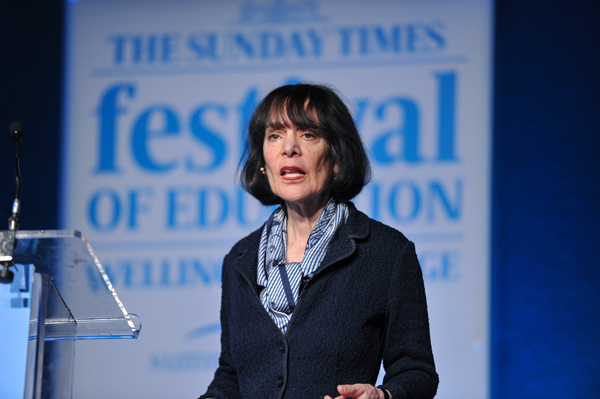
“People use it in too broad a way. We find that telling kids, ‘If at first you don’t succeed’, or, ‘it’s hard, just try’, then it’s not useful . . . but if you say, ‘You know when you do hard math problems, you grow your math brain’, then that is useful.”
She admits that she worried it is being used to justify test-heavy regimes in schools.
“School should be challenging and rigorous, but we should teach kids to love learning, to love challenges . . . to relish the improvement that they see. Then if they are learning well – which they should be, under the circumstances – they will do fine on the test!
“The end product of years and years of learning how to take a test is that you’re not an educated student who is going to know how to deal with the world.”
She also doesn’t think that having a growth mindset is a panacea. Schools need resources and trained teachers, too.
“Many teachers think they understand a growth mindset and understand how to apply it, and they don’t . . . really they are still worried about the child making mistakes.”
As we walk back to reception I ask Dweck about her plans for the rest of the day and note the unusual sunshine.
“We are very lucky when in London – it typically isn’t raining!”
One suspects that even if it did pour down, she would simply see it as one more challenge to joyously overcome.
See our Festival of Education supplement for more on growth mindsets
IT’S A PERSONAL THING
If you could only take one book to a desert island, what would you take (and why)?
I know you are asking what book inspires me most, but I would have to take a survival guide to any desert island! I grew up in New York City and I have no idea how I would exist on that island. In the best case, however, the survival guide would also have some poetry and art in it.
What three things would you save from a house fire?
The no 1 thing would be my husband David. After that I would take something that belonged to each of my parents.
What do you eat for breakfast?
Fruit and coffee. Today I had a bowl of apple, peaches, and cherries. (Lest this sound too virtuous, I then have the first of two lunches a few hours later.)
What was your favourite childhood toy?
I most loved my roller skates and bicycle – I always wanted to feel like I was going somewhere.
If you could revisit one period in history, which one would it be?
Please don’t take offence, but I’d love to have been a thinker and a writer at the time of the American Revolution. However, I hope that my 21st-century work can also empower people to achieve greater personal freedom and equality.
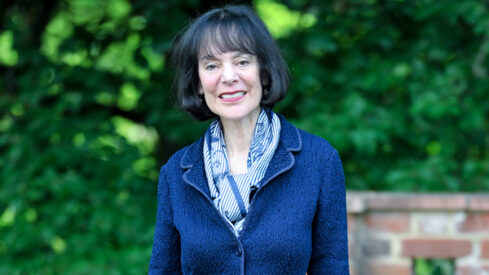

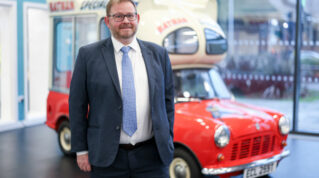
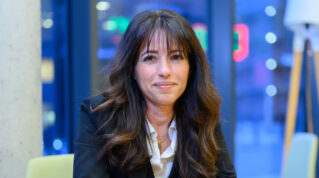

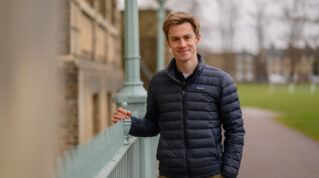


Your thoughts